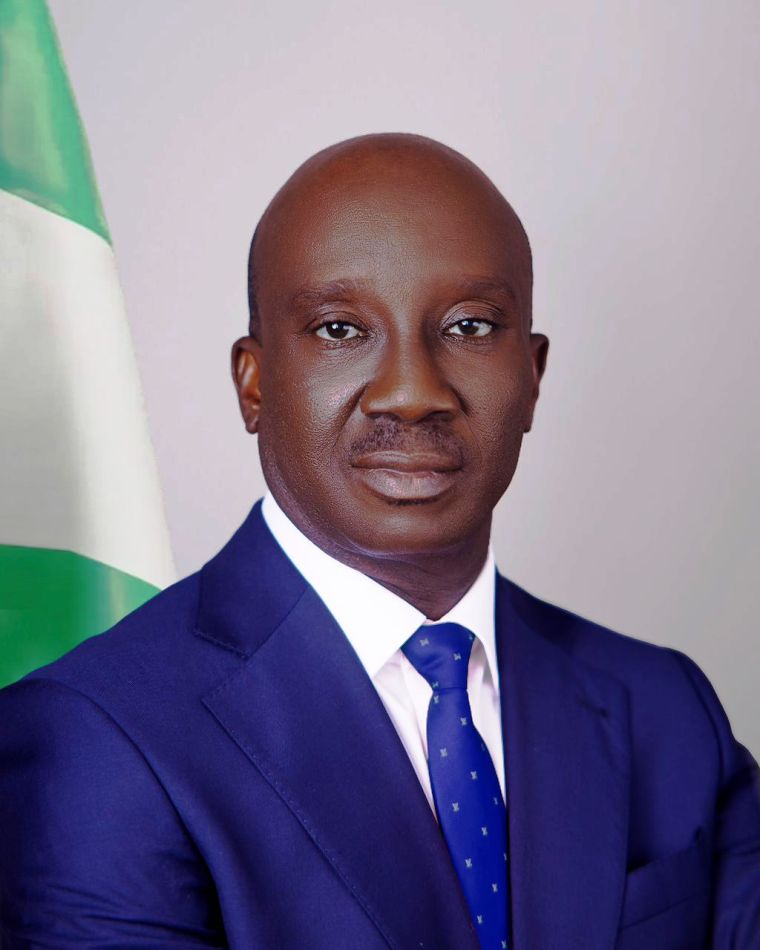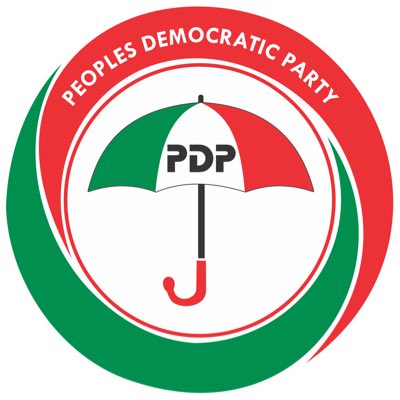Niger Delta
NAPTIP/ICMPD Renew Campaign Against Human Trafficking In Delta
The National Agency for the Prohibition of Trafficking in Persons (NAPTIP) and the International Centre for Migration Policy Development (ICMPD) on Tuesday in Asaba renewed campaign strategy against human trafficking in Delta State.
Hajia Binta Adamu-Bello, Director-General, NAPTIP, formally flagged off a two-day Awareness and Capacity Raising Workshop for School Principals, Vanguard Coordinators and Education Administrators.
According to her, the workshop was to equip participants on the use of the Tools for the implementation of TIPVAP Vanguards Under the School Anti-Trafficking Education and Advocacy Project (STEAP).
The Tide’s source reports that the programme was organised by NAPTIP in collaboration with ICMPD implementing STEAP in Delta State.
The project is being funded by the Government of the Netherlands.
Adamu-Bello, represented by Mr. Josiah Emerole, Director of Intelligence of Research and Programme Development Department, NAPTIP, said the workshop was to raise the participants’ awareness on issues of human trafficking and how to deal with it.
She said the fight against human trafficking should be a collective one and not to be left for government agencies alone.
She said 50 secondary schools have been selected in Delta, and that each school would have NAPTIP Students Vanguards to continue with the sensitisation against human trafficking in the state.
According to her, the workshop would help build the stakeholders’ capacity to coordinate the vanguards in their schools.
The NAPTIP boss further said the target is to catch the children young, to educate and equip them with requisite knowledge to create awareness among the students and their families to enable them identify the red flags of trafficking.
“As principals and Vanguard coordinators, you owe the children responsibility to save them from becoming victims of the traffickers.
“Also, as principals and teachers, what we are doing here toady is also for you, you can be trafficked as a teacher, principal or parent by the traffickers for forced labour, sex or for organ harvesting.
“A few years ago, NAPTIP with ICMPD infused trafficking in persons issues in the curriculum of basic and secondary school education in Nigeria.
“Now to further that, we began to set up clubs in schools called Vanguards in secondary schools and Brigades in Primary schools”, she stated.
She, however, disclosed that the agency has so far rescued and reintegrated into the society about 26,000 victims while 700 persons have been convicted by the agency.
Also, Mrs. Rhoda Johnson, Project Manager, International Centre for Migration Policy Development (ICMPD)- STEAP project, said the project’s target was to ensure children are safe and less vulnerable in the society.
She noted that the training was aimed at sustaining awareness, strengthening collaboration and understanding of issues of trafficking and how to report trafficking in persons.
”The STEAP project have other components, but what we are doing now is being implemented by NAPTIP which is to inaugurate vanguards in 50 schools in Delta State and other four states where we are implementing the project.
“The aim of the STEAP project is to strengthen awareness, enhance stakeholders capacity and collaboration with Civil Society Organisations to prevent trafficking among school age children.
”The STEAP project is for four years. We started it in 2024 and it will end in 2027. We are collaborating with government and it is part of the sustainability plan, so that when the project is ended as per funding by the government of the Netherlands, the State Government could carry on.
“We also expect the government to replicate the school vanguards in other schools and communities.
“That is why we are working with NAPTIP which is saddled with the responsibility of inaugurating vanguards and it has been doing well and NAPTIP will do more now with funding”, Johnson said.
In a remark, the State Attorney–General and Commissioner for Justice, Mr. Ohwovoriole Ekemejero, represented by Mrs. Ijoma Nwanze, Secretary, State Taskforce Against Human Trafficking, lauded NAPTIP and ICMPD for the sustained fight against human trafficking in the state.
Also, the State Commissioner for Secondary Education, Mrs. Rose Ezewu, represented by Mr. Macleans Eze, Desk Officer, State Task Force Against Human Trafficking and Irregular Migrations, said the workshop was apt.
“This workshop represents a crucial step in equipping our school principals, vanguard coordinators and school administrators with the knowledge and tools necessary to protect our children from exploitation and abuse.
In a lecture titled, ”Understanding Human Trafficking”, the Director, Public Enlightenment, NAPTIP, Kehinde Akomolafe, said traffickers deploy deception, isolation, debt bondage, fetish oaths to control their victims.
According to her, the traffickers are members of the family, friends and associate who are driven by inordinate ambition to make money.
The source reports that about a hundred participants have so far been engaged to benefit from the workshop aimed at stemming the tide against human trafficking in Delta State.
Continue Reading
Niger Delta
Okpebholo Assures Corps Members Of Improved Welfare

Edo State Governor, Monday Okpebholo, has assured corps members deployed to the state of improved welfare and a supportive service year.
Okpebholo gave the assurance at the swearing-in ceremony of the 2026 Batch ‘A’ Stream I corps members last Friday at the National Youth Service Corps (NYSC) Permanent Orientation Camp in Okada.
The Governor also reaffirmed his administration’s commitment to youth empowerment, safety and entrepreneurship.
Represented by the Commissioner for Youth Affairs, Mrs. Charity Amayaenvbo, the Governor urged corps members to embrace innovation, community service and self-reliance rather than wait for white-collar jobs.
“Edo is committed to supporting youth empowerment, entrepreneurship and incentives that turn ideas into enterprises.
“Do not wait for jobs, create value. Wherever you are posted, serve your host community with humility, dedication and compassion.
“Have a positive footprint and let your service contribute to unity, productivity and progress,” he said.
Okpebholo assured the corps members that the state government was attentive to their welfare and had started addressing key concerns raised by the NYSC leadership.
“On behalf of the state government, I assure you of our support in terms of safety, an enabling environment and a rewarding service year.
“I listened carefully to the requests highlighted by the state coordinator, and I am glad to inform you that some of them have already been captured in the 2026 budget, which has been approved and signed into law,” he said.
The Governor noted that provisions for accommodation, meal subsidies, logistics and the construction of a multipurpose hall at the camp were included in the budget.
Earlier in her address, the Edo State Coordinator of the NYSC, Dr. Frances Ben-Ushie, described the ceremony as a reflection of the state government’s commitment to youth development and national integration.
Ben-Ushie said as of midnight on Thursday, a total of 1,235 prospective corps members, comprising 531 males and over 700 females, had been duly registered.
She congratulated the corps members on their enlistment into what she described as a “noble scheme,” urging them to embrace discipline, learning and active participation throughout the orientation course.
“The NYSC platform provides a unique avenue to meet people from diverse backgrounds, build lifelong friendships and create networks that can open doors to greater opportunities,” she said.
Ben-Ushie also highlighted the contributions of the NYSC to the state’s development, noting that the scheme had consistently provided skilled manpower, promoted labour mobility and strengthened national unity.
She cited initiatives such as the Health Initiative for Rural Dwellers and the Skills Acquisition and Entrepreneurship Development programme as key interventions benefiting communities across the state.
The NYSC coordinator commended the state government for its support, including the provision of buses for corps members, and appealed for further intervention to address lingering operational challenges at the orientation camp.
She expressed confidence that resolving the issues would enhance the effectiveness of NYSC programmes in the state and thanked the Governor for prioritising the welfare, security and growth of corps members.
Niger Delta
PDP Declares Edo Airline’s Plan As Misplaced Priority

The Edo chapter of the Peoples Democratic Party (PDP) on Friday condemned the state government’s reported plan to establish a state-owned airline.
The party, in a statement by its Edo State Publicity Secretary, Mr. Dan Osa-Ogbegie, described the proposal as a misplaced priority and evidence of poor, disconnected governance.
The Tide’s source reports that the State Governor, Monday Okpebholo, unveiled the airline plan during a meeting with Aviation Minister, Mr. Festus Keyamo, in Abuja.
Osa-Ogbegie said the proposal showed a government out of touch with the pressing challenges confronting Edo State residents.
“At a time of decaying infrastructure and stalled projects, establishing an airline is unrealistic and profoundly insensitive”, he said.
He argued that airlines were capital-intensive and technically demanding, noting that similar state-owned ventures in Nigeria had largely failed.
According to him, Benin has become a shadow of what a modern state capital should be.
He decried poor roads, collapsed urban planning, neglected drainage systems and weak municipal services across the state capital.
“This is a crying shame for a city of Benin’s history, heritage and enormous potential”, he said.
Osa-Ogbegie said several inherited projects had stalled or deteriorated, eroding investor confidence and undermining economic growth.
He accused the governor of pursuing “white elephant projects that offer optics without substance.”
He also cited ongoing flyover projects in parts of Benin as examples of poor prioritisation.
Against this background, he described the airline proposal as diversionary and lacking economic sense.
“When roads are barely motorable and services overstretched, proposing an airline betrays an absence of judgment,” he said.
He urged the government to abandon the plan and focus on people-centred priorities that would improve living conditions and spur growth.
“Edo does not need an airline to fly above its problems. It needs a government ready to confront them on the ground,” he said.
He warned that failure to refocus would deepen perceptions of an administration lacking direction, competence and a coherent development agenda.
Niger Delta
Students Protest Non-indigene Appointment As Rector in C’River
Students of Federal Polytechnic, Ugep, Cross River State, have protested to the Governor’s Office in Calabar over an alleged plan to appoint a non-indigene as Rector for the institution.
Carrying placards with various inscriptions, the students demanded respect for catchment area policy, local content, and the appointment of an indigene of the state as Rector of the institution.
Speaking on behalf of the students in Calabar, Stephen Etem said the protest sought to alert the Federal and Cross River State Governments to an alleged deviation from the established rectorial selection process.
Etem said a Governing Council, chaired by Sen. Florence Ita-Giwa, was constituted by the Federal Government to conduct the Rector selection exercise.
“The screening, which began last year, reportedly produced a Cross River State indigene as highest scorer and recommended candidate.
“Information available to us suggests that the alleged recommended candidate’s name might be substituted at the Federal Ministry of Education.
“We urge the Federal Government to uphold the council’s recommendation because altering the process could threaten peace in the institution,” he noted.
Responding at the Government House, Mr. Goddie Akpama, the Special Adviser on Intelligence to the State Governor, Bassey Otu, appealed for calm, saying the Governor was away but would be briefed.
Akpama advised the students to submit written petitions through appropriate channels, avoid inflammatory language, and engage authorities to ensure stability and uninterrupted academic activities.
-

 News2 days ago
News2 days agoDon Lauds RSG, NECA On Job Fair
-

 Transport9 hours ago
Transport9 hours agoNigeria Rates 7th For Visa Application To France —–Schengen Visa
-

 Niger Delta6 hours ago
Niger Delta6 hours agoPDP Declares Edo Airline’s Plan As Misplaced Priority
-

 Nation7 hours ago
Nation7 hours agoHoS Hails Fubara Over Provision of Accommodation for Permanent Secretaries
-

 Sports7 hours ago
Sports7 hours agoSimba open Nwabali talks
-
Rivers8 hours ago
Fubara Restates Continued Support For NYSC In Rivers
-
Niger Delta8 hours ago
Stakeholders Task INC Aspirants On Dev … As ELECO Promises Transparent, Credible Polls
-

 Oil & Energy9 hours ago
Oil & Energy9 hours agoElectricity Consumers Laud Aba Power for Exceeding 2025 Meter Rollout Target

